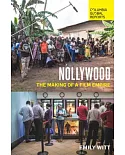Although revered as one of the world's great filmmakers, the Indian director Satyajit Ray is described either in narrowly nationalistic terms or as an artist whose critique of modernity is
largely derived from European ideas. Rarely is he seen, as in this book, as an influential modernist in his own right whose contributions to world cinema remain unsurpassed. In this benchmark
study, Keya Ganguly situates Ray's work within the internationalist spirit of the twentieth century, arguing that his film experiments revive the category of political or "committed" art. She
argues that in their melancholic depictions of Indian life, Ray's films intimate the sense of a radical future, and she shows how Ray redefines the grammar of cinema to make possible a vision
of society unavailable in the novel or theater. Rather than merely portraying traditional themes, Ray's cinema documents the capacity of the image to conceptualize a different world glimpsed in
the remnants of a disappearing past.





















